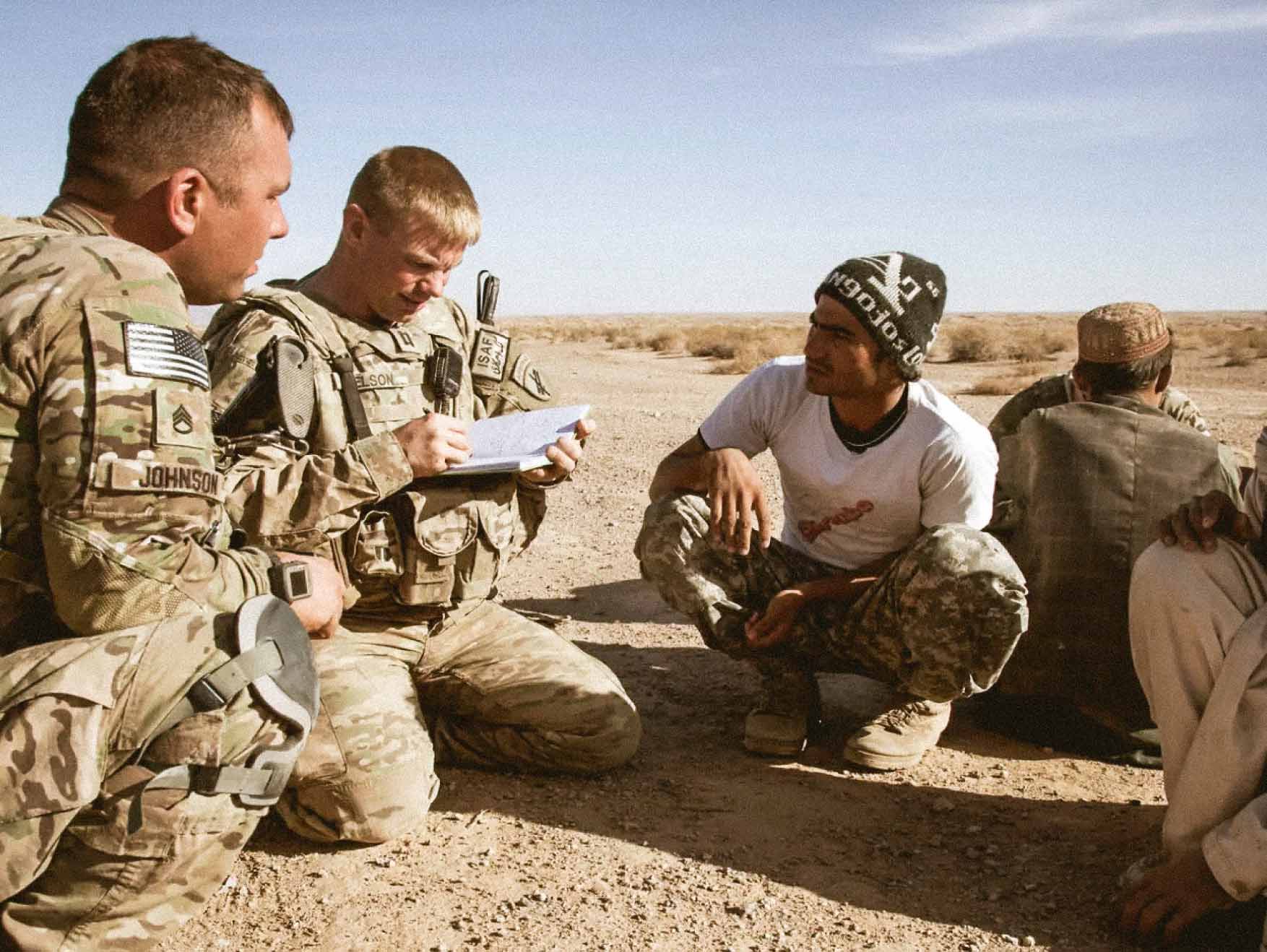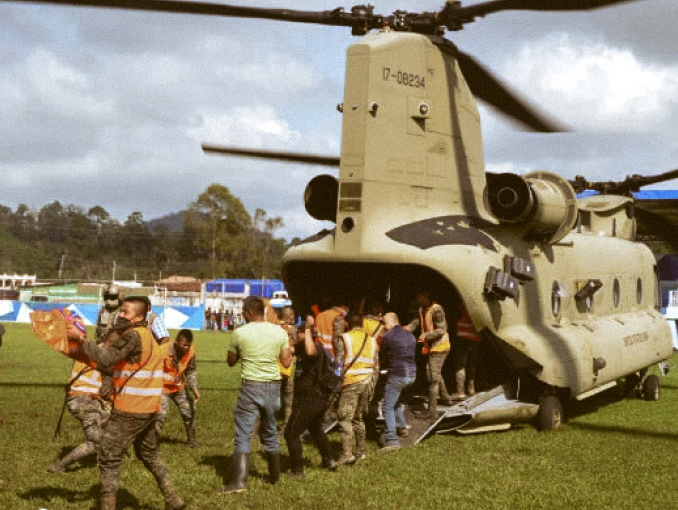Basic Training and Advanced Individual Training
Two training programs are combined into one with a focus on combat tactics and reconnaissance.
Civil Affairs Soldiers work together with communities around the world to increase stability, enable local governments, and improve quality of life for civilians.

Work
Work
from the
from the
ground up.
ground up.
Army Civil Affairs Soldiers work in close partnership with other government agencies and the militaries of allied nations.
Army Civil Affairs Soldiers partner with the government agencies and militaries of allied nations. They are persuasive and diplomatic negotiators who work to ensure U.S. interests are represented and defended when dealing with foreign governments.
You’ll help protect civilians and reduce the root causes of instability around the world. You’ll also keep Army commanders informed of what communities abroad need when caught in crisis zones, as well as help distribute humanitarian aid in both combat and non-combat zones.
Active-duty Civil Affairs Soldiers are part of Special Operations. They’re selected through a tough evaluation process, followed by additional training in government, diplomacy, and survival.
Civil Affairs teams are unlike any other. They’re tactical, physically fit, highly trained, and bring a specific expertise to every mission.
This Officer is the highest-ranking member and the “face and voice” of the team. They’re responsible for planning, coordinating, and leading missions.
This is the most senior enlisted Soldier on the team. They’re responsible for the security and protection of the team.
This is an enlisted Soldier who leads the team in conducting civil engagements, infrastructure evaluations, and day-to-day analysis.
This enlisted Soldier is responsible for the overall health of the team and provides a medical analysis of an operational area to help plan civil missions.
Civil Affairs training is rigorous to ensure Soldiers can withstand tough conditions, analyze threats under pressure, and develop solutions to difficult problems around the world. If you join as a new active-duty or part-time recruit, you’ll complete a seven-phase training program. If you’re currently an active-duty or Army Reserve non-commissioned Officer or commissioned Officer, you’ll begin in the fourth phase of training.
Two training programs are combined into one with a focus on combat tactics and reconnaissance.
Learn the techniques involved in parachuting from airplanes and landing safely. You’ll become qualified to use a parachute for combat deployment, as well as develop leadership skills, self-confidence, and resiliency.
Complete intense mental and physical conditioning to prepare for the Civil Affairs selection process.
Find out if you’re selected to join Civil Affairs based on your character, courage, commitment, and intellect.
Learn the basic skills needed to lead small teams of Soldiers and advance to the rank of Sergeant.
Study Army doctrine and conflict operations, field training exercises, organized problem-solving, and a foreign language.
Get assigned as an enlisted Soldier or Army Officer to the 95th Civil Affairs Brigade at Fort Liberty.
To become a Civil Affairs Medical Sergeant, you’ll attend 44 weeks of additional Special Operations Medic training, with an emphasis on trauma medicine field care.
If you’re interested in Civil Affairs and not yet in the Army, you’ll need to meet specific requirements to be considered.

Depending on if you’re an enlisted Soldier or an Army Officer, there are different requirements you’ll need to meet.
Current Soldiers
Current Officers
Pass the Army Combat Fitness Test (ACFT) and meet height and weight standards
Hold a rank of private first class, specialist, corporal, sergeant, or staff sergeant
Meet Time-in-Service and Time-in-Grade requirements
Be eligible for a secret security clearance
Not finding what you need?
Chat with us any time.
A Civil Affairs Soldier is someone who is physically fit, tactically skilled, and culturally aware of their surroundings. They are able to conduct global missions in harsh environments that are politically sensitive or even hostile.
Yes, many Civil Affairs Soldiers are in the Army Reserve or Army National Guard. They use their unique professional skills from the civilian sector to support the military and help stabilize conflict areas.
If you are not ultimately selected to join Civil Affairs during training, you will be assigned to a unit as a qualified 12B Combat Engineer.
Yes, during training you will learn the language you’re assigned, which could include Russian, French, Indonesian, and Spanish, multiple dialects of Arabic, Chinese-Mandarin, Persian-Farsi, Korean, Tagalog, Thai, Urdu, and Brazilian Portuguese.
You have no saved jobs.
Take a short quiz or explore more than 200 jobs that might interest you.
Army Career Match